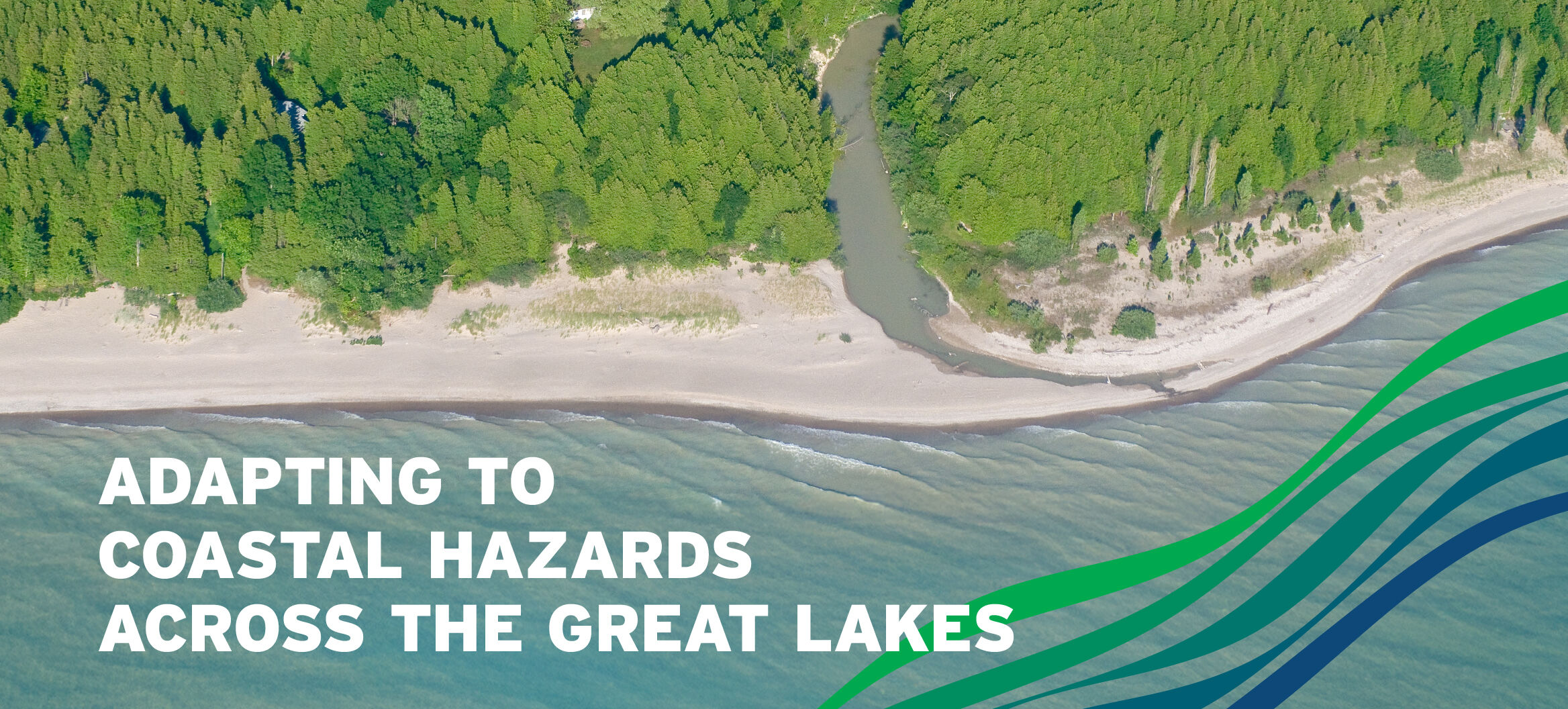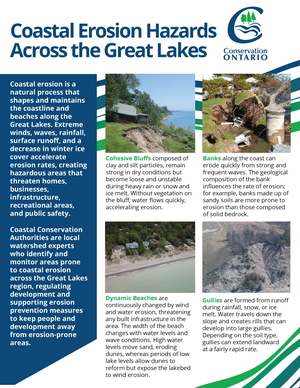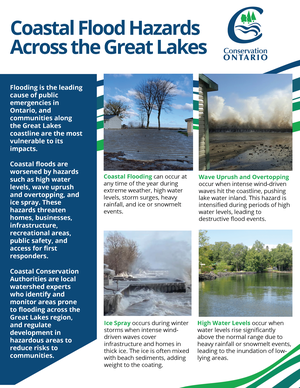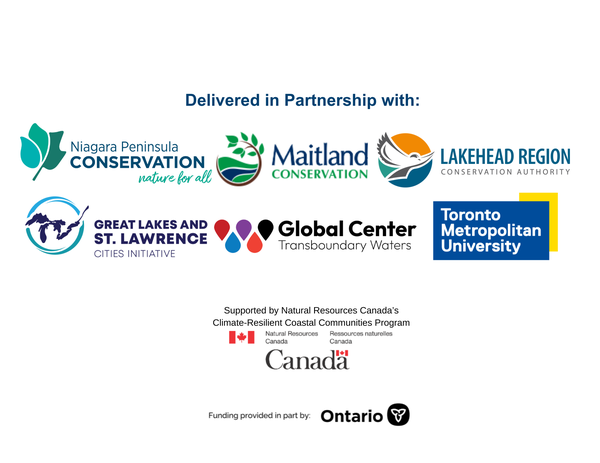Reducing Risks for Coastal Communities
From frequent storm surges to extreme weather events, communities along the Great Lakes coast are facing the impacts of coastal flooding and erosion. These hazards can damage residential properties, local businesses, and critical municipal infrastructure like roads, boardwalks, and water treatment facilities. The Coastal Conservation Authorities proactive approach to hazard management helps the communities and municipalities on the Great Lakes coast protect their infrastructure, avoiding financial losses.
In 2024, the Canadian Federal Government launched the four-year (2024-2027) Climate-Resilient Coastal Communities (CRCC) program, allocating $4.1 million in funding for pilot projects across the Great Lakes Region. The program is a response to the disproportionate impacts of climate change on coastal communities affecting their wellbeing, local economies and surrounding environment.
Conservation Ontario’s funded Adapting to Coastal Hazard Across the Great Lakes Project is partnered with Conservation Authorities, who are undertaking three pilot projects on Northern Lake Superior, Southern Lake Huron and Western Lake Ontario. These pilot projects will assess the social, environmental, and economic impacts of coastal hazards and climate change and will engage municipal and community partners, businesses and Indigenous groups. This project will support Conservation Ontario’s capacity to provide support to the Conservation Authority Coastal Network in delivering their mandate for managing coastal hazards as local partners across the entire Great Lakes Region.
Conservation Authority Pilot Projects StoryMap
View Full Screen
Pilot Webpages
Factsheet Infographics
Other CA Coastal Resilience Projects
Conservation Authorities are leading innovative projects to strengthen our coastlines against climate change. These efforts help protect vital municipal infrastructure, homes, businesses, and entire communities.
Explore the map to learn more about completed and ongoing projects. To view details on any project, click the project location (red dots).



